
Fermented vegetables are good sources of Vitamin K2.
Photo Credit: Google
Brian Sanderoff, a holistic Pharmacist and Herbal / Nutritional counselor, once said that the #1 killer is not heart attack or stroke, or high blood pressure, diabetes, or cancer, but MIS-INFORMATION.
If we know more about how our body works, we can take care of our body very well and so we can prevent and avoid these many diseases.
The #1 killer is not heart attack or stroke or cancer; the #1 killer is MIS-INFORMATION.
- Brian Sanderoff, a Natural / Alternative counselor
A. Vitamin K, the Super Vitamin
It is little known that Vitamin K, especially its component, Vitamin K2, has a very important role in the promotion of our optimum health.
Since Vitamin K’s discovery in the 40’s, it is known only as a coagulant, the vitamin that makes blood to clot, to stop bleeding. I discussed this role of Vitamin K, specifically Vitamin K1, in my previous blog, “Vitamin K and Its Benefits”.
Vitamin K is a group of compounds in three forms: K1, K2, and K3. In this blog, I will focus on the major roles of Vitamin K2 in relation to our cardiovascular, bone health and other disorder, and the potential role of Vitamin K3 in cancer treatment.
The information we have known about Vitamin K2 today is just the tip of the iceberg. Vitamin K has many more potential benefits that are not fully known yet. Science is still catching up with the Intelligent Design of the great Creator.
For healthy heart and brain, strong bones and teeth, healthy blood vessels and veins, and more, take foods rich in Vitamin K2 daily.
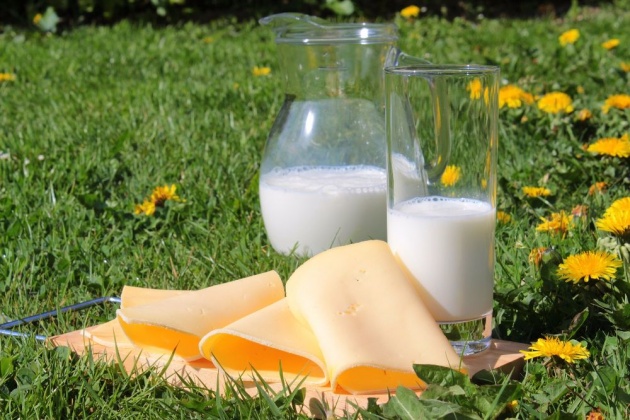
grass-fed cheese and fermented milk (from grass-fed cows or goat) are good sources of vitamin K2.
Photo Credit: www.pixabay.com
Calcium and Calcification
Remember that 99% of the calcium in our body is in the teeth and bones, and only 1% is in the blood, muscles, and in the fluid outside the cells and other body tissues.
Calcium is very important to our bone structure, to make them strong and hard. We also need calcium for muscles to move and for nerves to carry messages between the brain and every body part. In addition, calcium is used to help blood vessels move blood throughout the body and to help release hormones and enzymes that affect almost every function in the human body.
Calcification; which is also called calcium poisoning, is when calcium builds up in places where they are not supposed to be. Calcification normally occurs in the formation of bone, but when calcium is deposited abnormally in other soft tissues, it is hardened, or calcified.
The calcified calcium can disrupt the normal body processes and cause serious health problems over time.
Since calcium is transported through the bloodstream and it is also found in every cell, calcification can occur in almost in any part of the body when the calcium in the blood is not properly directed to the bones and teeth only.
Again, calcification is the accumulation of calcium salts in a body tissue where it is not supposed to be.
Although some of the calcium buildup may be harmless; they are those which are believed to be the body’s response to inflammation, injury, or certain biological processes; but some can disrupt organ function and can affect blood vessels.
Calcification may be classified on whether there is mineral balance or not, and the location of the calcification, such as in blood vessels, body tissue, or organs.
Calcification may happen in the brain, heart, liver, lungs, kidneys, gallbladder, breast, joints, and other places; and these will cause serious health problems.
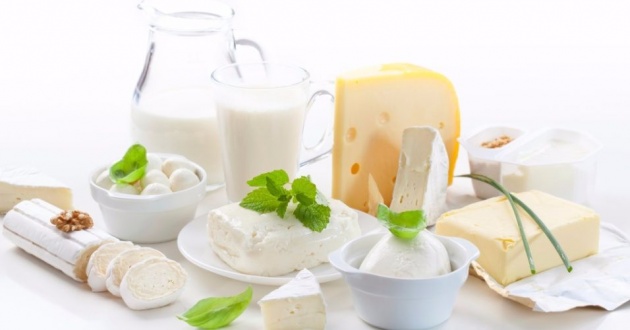
grass-fed fermented cheese and butter from grass-fed cows and goats are good sources of vitamin K2.
Photo Credit: Google
Calcification and Diseases
When calcium is not in the bones and is deposited elsewhere in any part of our body, calcification happens; then our health is compromised. That is why we suffer from these health issues:
1.For lack of calcium
- osteoporosis,
- hip and bone fractures
- cavities in our teeth
- cancer
2. Due to calcification of calcium deposit
- coronary atherosclerosis
- coronary heart diseases
- hypertension
- cranial calcification
- arthritis and pains in the joints
- kidney stones, bladder and gallbladder stones
- pre-mature aging and wrinkled skin
- cataract
- others
Please watch this video if you want to know how to Get Vitamin K2
Natural Foods Diet - Natural Health Information - Dr Gerhausen
Video Credit: www.youtube.com
B. The Role of Vitamin K2
I was excited to know that Vitamin K2 can easily help address some of our main health issues, such as, loss of bone mass and bone density (osteoporosis and bone fractures), cardiovascular diseases (the disease of the heart and blood vessels), even cavities in our teeth and the aging process of our body.
It is amazing to know that by simply including in our diet foods that are rich in vitamin K2, we can prevent and/or treat many of the major diseases today.
Incidentally, calcification is not caused by taking too much calcium-rich foods; it has nothing to do with how much calcium we take in daily.
Rather, calcification has much to do with the presence of enough Vitamin K2 in our body. Why? we are going to know shortly.
Incidentally, calcification is not caused by eating too much of the foods high in calcium; rather, it is whether there is enough Vitamin K2 available in the body.
What is Homeostasis
Homeostasis refers to the processes by which our body does what it needed to do to maintain life; like blood clotting when there is bleeding. It will adopt in different ways to achieve it.
These countless processes go on inside our body 24/7, of which we are not conscious of. Like cooking, many “ingredients” are necessary to complete a certain task. If these tasks are not carried out effectively, the body will be in a miserable state and may not survive long
Vitamins and minerals play very important roles in these processes. They are needed to complete these varieties of life maintaining tasks. Like in the case of blood clotting, the process cannot happen without Vitamin K1, the clotting agent.
We will now see how the lack of Vitamin K2 in our body affects our health, specifically with regards to our teeth, bones, heart, blood vessels, and other organs.

Grass feeding cows are good sources of vitamin K2.
Photo Credit: Google
Vitamin K2, Calcium and Calcification
It is only in the recent years’ studies that the role of Vitamin K2 with regards to proper distribution of calcium in our body is known. Vitamin K plays a very big role in the effective calcium distribution in our body and also in keeping them away from where they are not supposed to be.
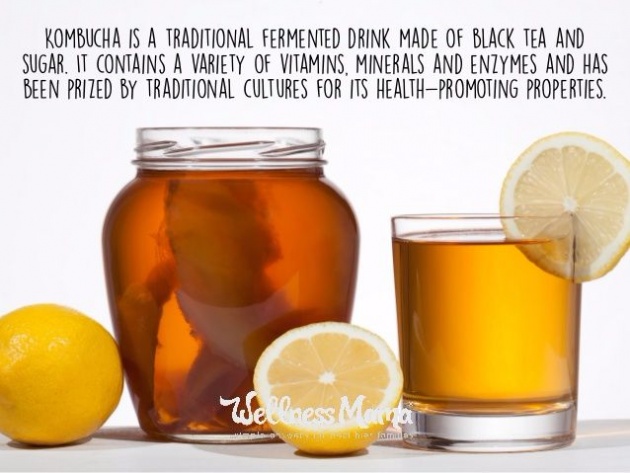
Kombucha is also a good source of Vitamin K2.
Photo Credit: Google
Vitamin K2 appropriates the use of Calcium
Vitamin K2 needs to “carboxylate” the different proteins assigned to deposit the calcium to the right places and away from where they are not needed. Without Vitamin K2, (also Vitamin D3) these proteins cannot do these tasks effectively.
Vitamin help mobilize calcium into the right places, that is, into our teeth and bone structure, where calcium is very much needed for boss mass and bone density to build a strong bone structure to support the body.
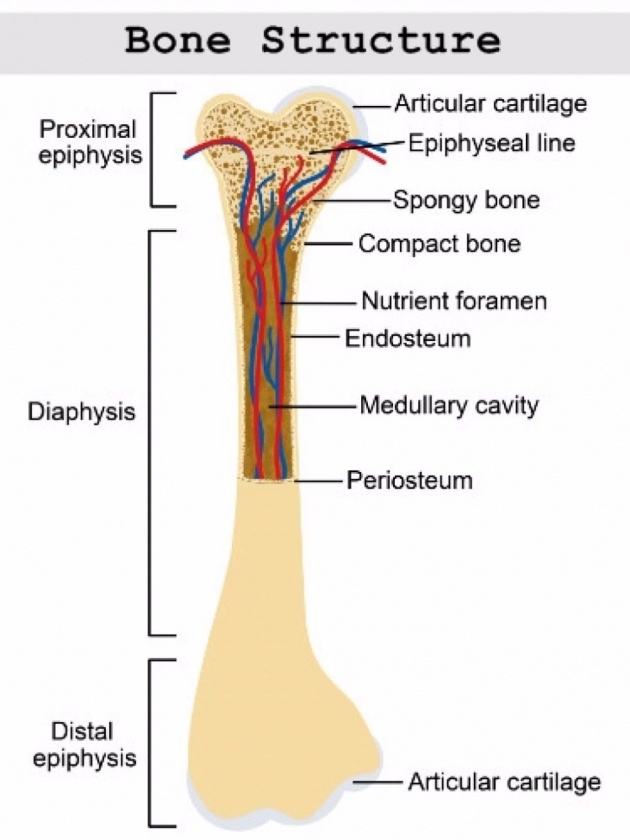
WITHOUT Vitamin K2, most of the calcium in the food we ate will not be used for building bones but will scatter all over the body through the blood vessels and wreak havoc to the body.
WITHOUT Vitamin K2, the calcium in the blood may be deposited instead into the arteries and blood vessels, kidney, liver, lungs, bladder, gall bladder, heart valves, cartilages, joints and tendons, soft tissues, like skin, breast, muscles, fat, and others where they may be calcified.
On the other hand, Vitamin K2 also helps remove calcium out of these wrong places.
In other words, the calcium from the foods we eat must be correctly brought from our intestines to the bones and the teeth where they are needed for strong bones and healthy teeth; and out of other places where they can cause serious health problems.
In short, Vitamin K2 helps keep our teeth and bones strong and prevent any calcification to happen in any part of our body.
Remember, whenever we take calcium supplements, we must also take Vitamin K2-rich foods to be sure these calcium ended up to where it is needed.
Therefore we can say that Vitamin K2 prevents us from many common diseases, such as, osteoporosis, stones in kidneys and gallbladder, joint pains, calcification in the brains, liver, lungs, breast and other soft tissue, as well as avoid hip and bone fractures and cavities in the teeth.
Remember, without Vitamin K2, the more calcium we take in, the more chances of calcification in various parts of our body, while our bone structure remains weak due to lack of calcium.
 Korean Kimchi is good source of Vitamin K2.
Korean Kimchi is good source of Vitamin K2.
Photo Credit: www.pixabay.com
Vitamin K2 and our Health
This is how Vitamin K2 helps us by supporting our bone structure, vascular (arteries and veins) system, brain and heart, and more. …
This is just the tip of the iceberg. Science is still catching up in the width and length of the Intelligent Design of our Creator. They are continually making new discoveries on what this super Vitamin K can do to keep us in optimum health.
Dr Deborah,said, "Hopefully, Vitamin K will find its rightful place in history as more people get to know about Vitamin K2 and the calcium paradox. Read her book, "How a Little-known Vitamin Could Save Your Life".
Hopefully, Vitamin K will find its rightful place in history as more people get a chance to know more about Vitamin K2 and the calcium paradox. ...
– Dr. Deborah, MD
C. Potential Benefits of Vitamin K2
There are some our potential benefits of Vitamin K2 that are being studied, among them are :
- It is anti-aging, it helps keep cells healthy
- It helps improve insulin resistance in older men
- It helps protect cells that line the blood vessels, including veins and arteries.
- Others
 sauerkraut is also a good source of Vitamin K2
sauerkraut is also a good source of Vitamin K2
Photo Credit: www.pixabay.com
D. Vitamin K3 and Cancer
There was a study that revealed the role of Vitamin K3 in the treatment for cancer; but no final words yet.
Initial studies showed that Vitamin K3, in combination of Vitamin C, can kill cancer cells naturally, thus, helps in treatment of cancer.
In short, if we include enough Vitamin K2 in our daily diet, we can prevent many of the common diseases that endanger our health, such as, heart attack, stroke, osteoporosis, kidney stones, even cancer and pre-mature aging.

Natto is another one good source for Vitamin K2. Photo Credit: Google
E. Sources of Vitamin K2
Now we know how important Vitamin K2 is to our overall health, we must concentrate on knowing where can we get this super vitamin and include them in our daily meals.
A.Foods rich in Vitamin K2 are :
1.By products of grass-fed chicken, cows and goats
By product of grass-fed chickens and grass-fed cows and goats or sheep, such as, eggs (yolk), fermented cow’s milk, like raw cheese, grass-fed butter and grass-fed cheese ( Gouda and brie ) and others, depending on what bacteria are used
2. Fermented foods
- fermented soy product; such as, kimchi, Natto, miso, tempeh, and others
- fermented milk, such as, yoghurt o Kefir, and amasai
- fermented vegetables, such as pickled veggie, kimchi,sauerkraut
- fermented beverages, such as kombucha (from black tea)
Among the best food sources are those fermented foods which contains loads of good bacteria or gut flora.
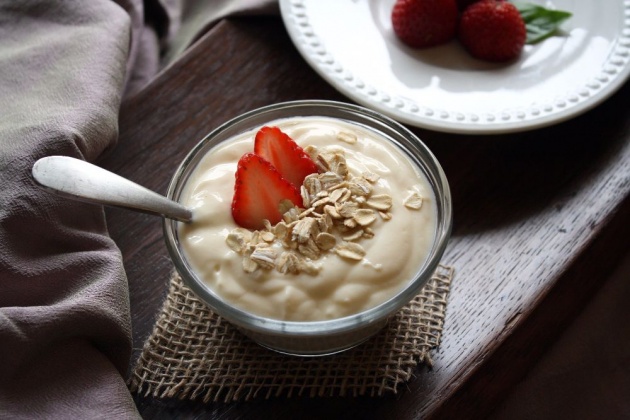 Yoghurt is a very good source of Vitamin K2.
Yoghurt is a very good source of Vitamin K2.
Photo Credit: www.pixabay.com
B. Vitamin K2 Supplement
Vitamin K2 are available in the forms of MK-4 and MK-7.
Adequate dose range from 90 to 140 mcg daily
Vitamin K2 supplement is better taken with Vitamin D3 if it is for bone problems; as this Vitamin also helps in the absorption and mobilization of calcium.
Vitamin K2 supplement must be taken only with consultation with your physician. Otherwise, just take foods rich in Vitamin K2.
C.Vitamin K2 is sensitized (made) in our guts (stomach).
When we ate green leafy vegetables, which contains Vitamin K1, the friendly bacteria or gut flora present in our guts convert them into Vitamin K2.
Because we do not know if there are enough good bacteria in our guts or if we have any digestive problems in our gut or not; this is not a reliable source.
Toxicity
There is no known level of Vitamin K2 toxicity.
Watch this video and know the foods that are rich in Vitamin K2
Dr. Josh Axe
Video Credit: www.youtube.com
***********************************************************************
Related blog:
Vitamin K and Its Benefits
http://www.bitlanders.com/blogs/vitamin-k-and-its-benefits/5327071
Some resource persons:
*** Brian Sanderoff - Holistic Pharmacist and Herbal/Nutritional Counselor
“Vitamin K: The Untold Story Of A Vitamin Superstar “ .... WellBeingGPS.com
***Ron Hunninghake, M.D - of Riordan Clinic
"Vitamin K: New Evidence for Cancer, Heart Health, and Bone Health"
The Riordan Clinic is a not-for-profit 501(c)3 organization focused on orthomolecular medicine, health education and health research.



